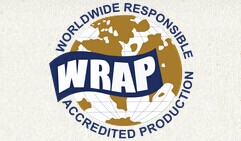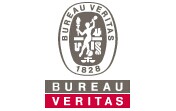The current position: Home > Extension >
ISO14064 Environment Standard Introdution(Time:2010-03-23 17:30:00)
What is ISO 14064?
ISO 14064 is an international standard against which GHG emissions reports are voluntarily verified. In parallel with the emergence of regulated or mandatory schemes relating to monitoring, reporting and verification of Greenhouse Gases (GHG), organisations outside of these schemes are now increasingly wishing to monitor and report their emissions (commonly referred to as the organization’s carbon footprint). In response to this demand and to provide an international standard against which such reports can be voluntarily verified, ISO 14064 has been developed.
ISO 14064 has been prepared in three parts:
-
ISO 14064, part 1
This details the principles and requirements for designing, developing, managing and reporting organization level GHG inventories. It includes requirements for determining boundaries, quantifying emissions and removals, and identifying specific company actions or activities aimed at improving GHG management. It also includes requirements and guidance on quality management of the GHG inventory, reporting, internal auditing and the organization's responsibilities for verification. -
ISO 14064, part 2
This focuses on GHG projects or project based activities specifically designed to reduce GHG emissions or increase GHG removals. It includes principles and requirements for determining project baseline scenarios and for monitoring, quantifying and reporting project performance relative to that baseline and provides the basis for GHG projects to be validated and verified. -
ISO 14064, part 3
This part of ISO 14064 provides principles, requirements and guidance for those conducting GHG information validation and verification. It describes a process for providing assurance to intended users that an organization's or project's GHG assertions are complete, accurate, consistent, transparent and without material discrepancies.
Benefits of ISO 14064
-
Show commitment - prove your commitment to being a greener organisation to your stakelholders, by reducing your carbon emissions and having those reductions independantly verified and validated.
-
Internal improvements - develop robust internal mechanisms for quantifying and reporting GHG emissions
-
Trust - the standard will help you prepare legitimate GHG assertions, claims and reports which can be used to build trust with your stakeholders.
-
Robust systems - To implement robust systems for the monitoring and reporting of GHG emissions
-
Future proofing - it will facilitate the development and implementation of your GHG management strategies and plans for the future.
-
Monitoring - it will provide the ability to track performance and progress in the reduction of GHG emissions and/or the increase in GHG removals.
-
Credibility - To enhance the credibility, consistency and transparency of GHG quantification, monitoring and reporting to any interested parties























